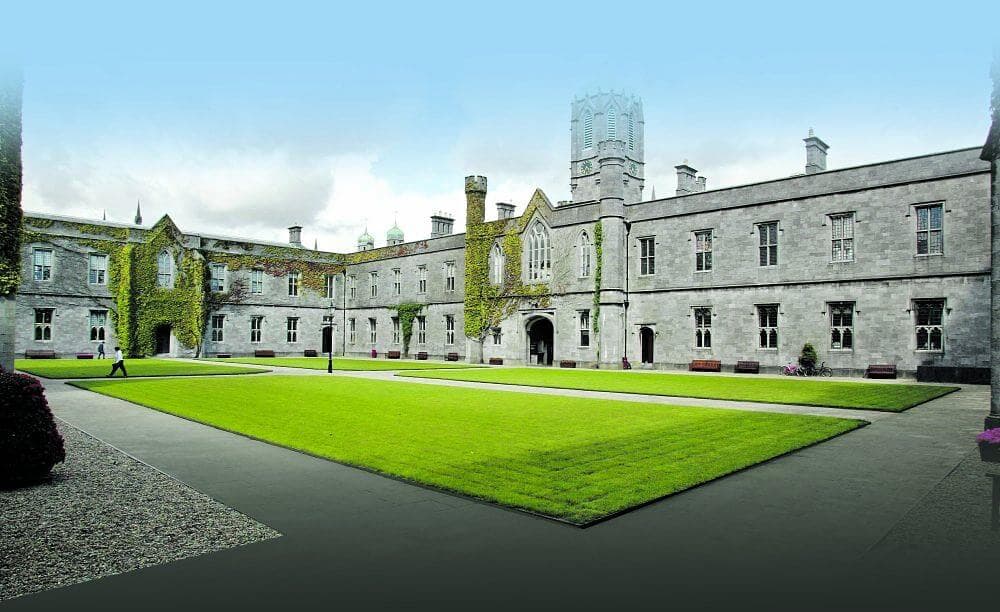Msc Marine and Freshwater Resources: Management)
National University of Ireland, GalwayGalway, Ireland
- Tuition Fee € 23,666
- Country Rank#14
- Duration12 Months
- Score IELTS: 6.5 TOEFL: 88
Program Overview
The MSc in Marine and Freshwater Resources: Management will enable graduates to develop a core understanding and advanced level of knowledge and skills in key areas relevant to the marine and freshwater environment. This will give them the skills required to start addressing some of the critical challenges’ society will face during the 21st century from human impact on the aquatic environment. Graduates will learn advanced problem solving, management, analytical and communication skills. It will develop their capacity and capability for scientific leadership and solution-based approaches relevant to their career trajectory. An MSc in Marine and Freshwater Resources: Monitoring and Management will build on undergraduate courses in Earth and Ocean Sciences, Marine Science, Environmental Science, Civil Engineering, Geography and Geosystems and the Bachelor of Science degree programme. It will provide a pathway for students interested in pursuing a career in industries concerned with the protection and use of water. The course will also be targeted at professionals in industry, government, and the regulatory sector who wish to further develop their skills and resources.
This course sets out to equip students with a broad range of skills and an understanding of the fundamental concepts underpinning the functioning of aquatic systems, the ability to communicate about them in a meaningful way and the ability to make informed and responsible decisions regarding marine and freshwater resources. On completion of the course students will be able to:
- Demonstrate comprehensive knowledge and understanding of the theoretical background that underlies both the uses and protection of marine and freshwater resources;
- Deploy a range of analytical skills and working knowledge of field techniques necessary to obtain high quality samples and data from environmental monitoring and management programmes;
- Display a range of the principal skills and practices for data assessment necessary to inform decision-making and management Employ skills to plan, organise and control activities to ensure successful project completion;
- Appraise a range of responses and then apply appropriate and ethical techniques for research, monitoring and management of marine and freshwater resources relative to relevant projects and national and international policy;
- Communicate results of monitoring, research and innovation to peers, engage in critical dialogue, lead and originate complex scientific processes and engage with the general public on ocean literacy;
- Apply the analytical and technical skills required for research and application in marine and freshwater systems;
- Evaluate current practice in relation to marine and freshwater monitoring and management and recommend and implement improvements of current practice for challenges that must be addressed, including, contaminant abundance, source to sink pathways, acidification, climate change and the ubiquity of plastics; and,
- Demonstrate awareness of international directives and national legislation related to marine and freshwater resources and the legal frameworks that underpin them.
Globally, we are very dependent on our marine and freshwater resources. Marine and freshwater environments support a diverse economy, including, (but not limited to) food (agriculture, aquaculture and fisheries), tourism and recreation, drinking water, oil and gas production, aggregate extraction and shipping, nature protection and renewable energies. Both marine and freshwater habitats are home to a rich diversity of animals, plants and microbes providing a range of tangible and intangible goods and services, while the impact of humanity on these resources is part of our inheritance and future. Human impacts and climate change will shape the future of these resources and the ability of these resources to provide the ecosystem goods and services which are essential to human well-being overall. Consequently, proper monitoring and management of marine and freshwater resources are vital to ensure the ecosystems they support are healthy and is also a legal requirement. The successful monitoring and management of these resources requires an adequate understanding of human activities and the context in which it takes place, especially when management responsibilities are split among many stakeholders.
Legislation and policy pertaining to the marine and freshwater environment reflects EU and international trends and therefore there is a need to provide expertise to support emerging policy and protect these resources on which many economic and social activities depend. The taught MSc in Marine and Freshwater Resources: Management gives graduates the training in the relevant areas of marine and freshwater processes, resource management, data management, practical skills, observation and policy and legislation that will help meet targets for sustainable ecosystem management and the circular economy.
The course has a focus on cross-sector skills and competences that can be transferred from one topic/occupational area to another, enabling national and international occupational mobility for its graduates, and giving them the skill set to work in and lead multidisciplinary teams. Cross-sector skills and competences are of growing importance all over Europe and are considered relevant to occupations across several economic sectors (ESCO).
The taught MSc in Marine and Freshwater Resources: Monitoring and Management that provides training in critical knowledge areas and an understanding of knowledge gaps in our aquatic environment and related human activities, as well as the capacity to engage in activities for their assessment, governance, management and communication, relevant to the environmental sector will (1) provide graduates with the competences to obtain employment in industry, research, policy development, monitoring or management and (2) help meet targets in relation to environmental obligations under EU and international Directives and the transition to a sustainable economy.
Cost Of Studying At National University of Ireland, Galway
Interest rates as low as 8.9% *
250K+
Students Assisted
800Cr+
Loan Amount Disbursed
5000+
Loans Sanctioned
